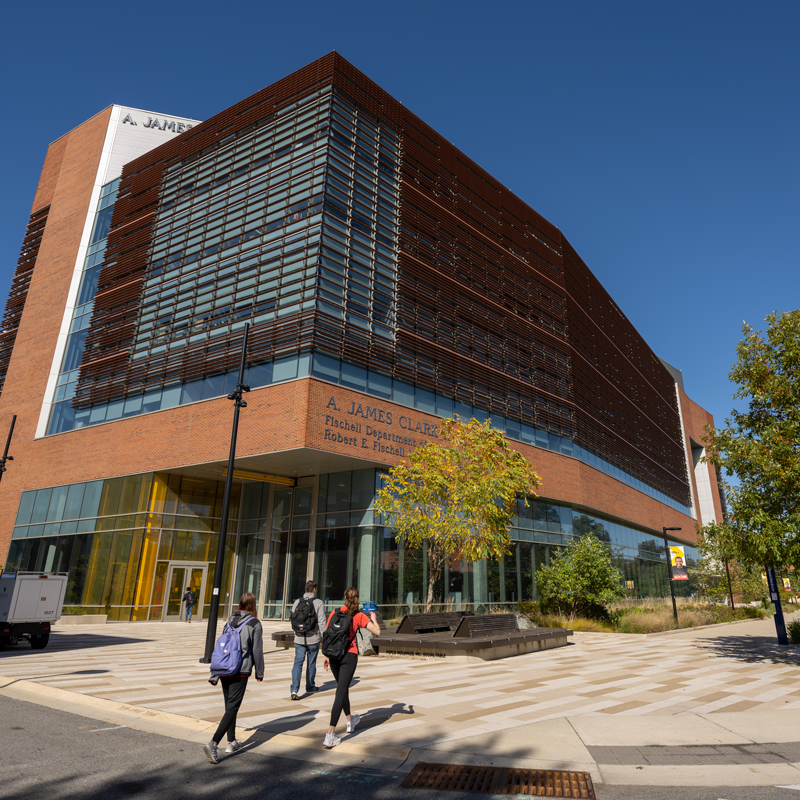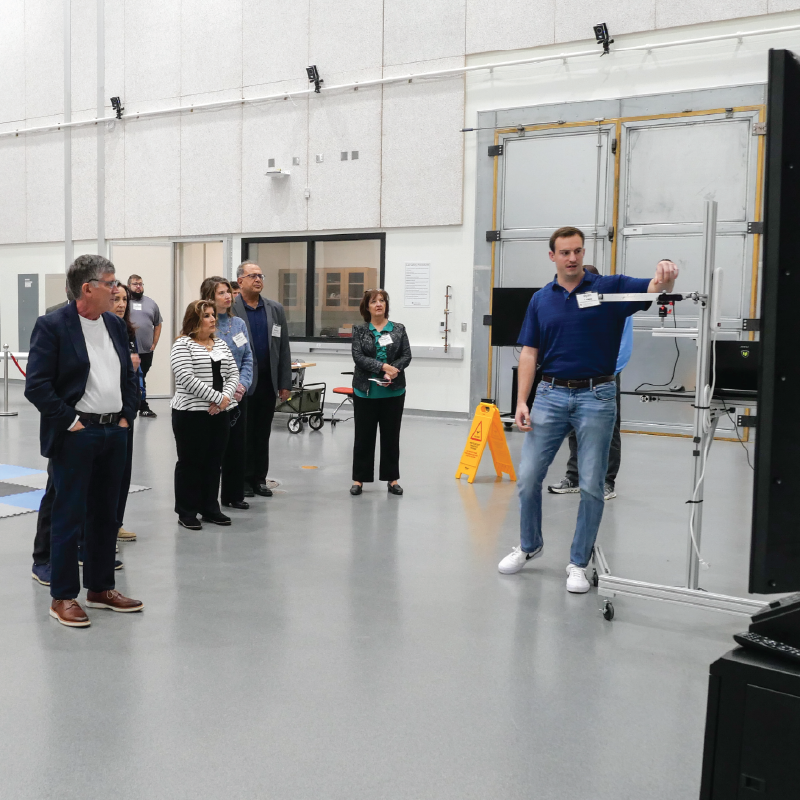News Story
Graduate Online Fire Protection Engineering Program Milestone: 20 Years of Serving a High-Demand Market
In 2003, students enrolled in the online Master of Engineering in Fire Protection Engineering degree program for remote learners received their class material as textbooks and PDFs, checking-in with their professors via weekly chat sessions. Faculty attempted to stream video to the distant students, but found that there was not enough bandwidth available to support it.
From those humble beginnings, the online Master of Engineering in Fire Protection Engineering degree program has evolved into an asynchronous remote learning experience that has continued to uphold the same rigorous academic standards as the in-person program for 20 years, now utilizing UMD’s high tech distance education and technology classrooms that give remote students a comparable experience to students in the classroom.
Home to the only fully ABET accredited undergraduate program and one of only three graduate degree programs in the U.S., the A. James Clark School of Engineering’s Department of Fire Protection Engineering is in a unique position to offer state-of-the-art fire protection engineering education as demand continues to rise for trained engineers to work in industry, insurance, federal agencies, state and local government, military, and fire service.
“The program was meant for students who could not come to College Park,” says Professor and Chair Dr. James Milke. “We recognized that we didn't need to have the faculty within a commuting distance of College Park, and so we drew on the world's experts to teach our courses.”
“We've drawn on extremely talented people to teach, and I see us continuing that model for the foreseeable future, drawing on the world's experts,” Dr. Milke continues, noting that the online mode of course delivery has allowed for experts from across the U.S., Canada, the U.K., and the Middle East to teach for the program.
“We recognized that we didn't need to have the faculty within a commuting distance of College Park, and so we drew on the world's experts to teach our courses.”
Professor and Chair Dr. James Milke
“The online Master of Engineering in Fire Protection Engineering degree program serves either as an extension of the undergraduate program in fire protection engineering or a pathway to delve into the field coming from another engineering discipline,” says Assistant Dean for Continuing Education Dr. George Syrmos, adding that mechanical, electrical, and civil engineers turn to the program to transition into fire protection engineering.
“The online program is principally geared towards working professionals, people that have either graduated with their B.S. from UMD and are looking to enhance their skills or people that have somehow found their way into fire protection engineering through their career track,” Dr. Milke says. “So, the basic purpose of the program then was to teach the practical applications of fire protection engineering. That involved reviewing tools and analysis methods that a practicing fire protection engineer would use for facility design.”
Now offered through Maryland Applied Graduate Engineering, which also currently offers a master of engineering degree in sixteen other engineering disciplines, the online Master of Engineering in Fire Protection Engineering degree program has had 241 graduates since 2003. As of Fall 2022, there are 36 current students, domestic and international.
“After graduating from UMD with my B.S. in Fire Protection Engineering, I wanted to be able to begin my career as an engineer while also pursuing a Master's degree, so the online aspect of the program made this possible,” recent graduate Christopher Hallock (M.Eng. '21) recounts. “I am currently employed as a Staff Consultant with Jensen Hughes, working as a fire protection engineer on buildings and projects mostly in the Washington metro region. I also serve as a Captain with the Rockville Volunteer Fire Department in Montgomery County, MD.”
“The coursework from the online fire protection engineering master of engineering has furthered my knowledge of fire dynamics, performance-based design, and special hazards which I use in my career nearly everyday,” Hallock continues. “The accessibility of the program made it possible to achieve while engaged in my other career aspirations.” Hallock was also able to receive licensure as a State of Maryland Professional Engineer a year early due to earning his master's degree and will be teaching this spring at Howard Community College.
Read more about the contributions of University of Maryland’s fire protection engineering– studying the behavior of fires in informal settlements, such as modern day refugee camps– in the Spring 2023 issue of Engineering at Maryland magazine.
Published April 20, 2023









